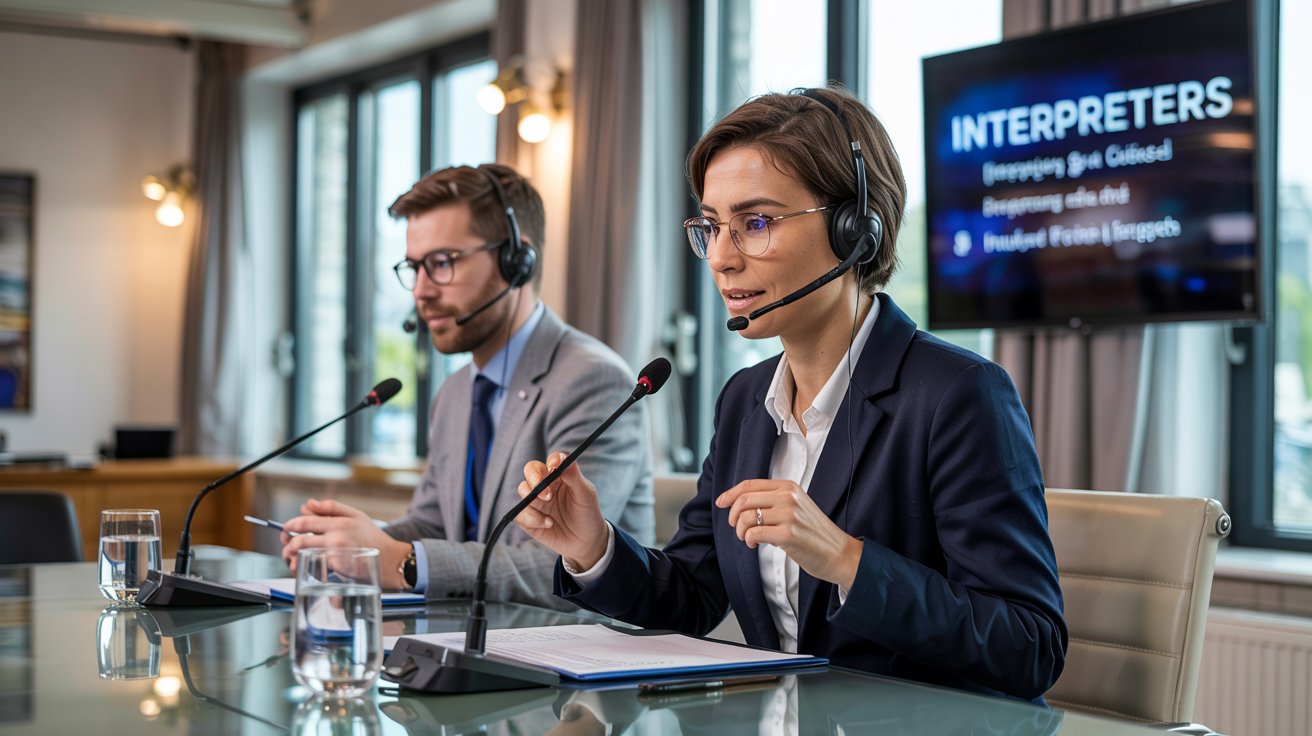Have you ever thought about what happens when someone who doesn’t speak the local language needs to register a birth, give notice for marriage, or attend an official ceremony? These are some of life’s most important moments—joyful occasions that deserve to be celebrated with clarity and understanding. But when language barriers come into play, things can get tricky.
Whether it’s explaining legal documents, guiding people through procedures, or helping them understand their rights, interpreters make sure that no one feels left out or confused during these significant events. Here, we will explore why registrars might ask for an interpreter, the types of situations where this becomes necessary, and how having professional support makes all the difference.
Birth Registrations
Birth registrations are among the first official steps parents take after welcoming a new baby into the world. It’s not just about filling out forms – it’s about making sure every detail is accurate because this document will affect the child’s future. For non-English speakers, however, navigating this process without help can feel overwhelming.
One of the first things needed to know was the difference between short and full birth certificates. The short version includes only the baby’s details—name, date, place of birth—and is usually free of charge. On the other hand, the full certificate contains additional information like the parents’ names, occupations, addresses, and even the mother’s maiden name.
This distinction matters more than you might think. Some people prefer the short certificate to avoid sharing too much personal information unnecessarily. However, if the family plans to apply for citizenship in another country, such as Russia, the full certificate is essential. Why? Because it proves the child’s relationship to their parents, which is critical for applications involving foreign governments. Even small details, like matching the parent’s name on the birth certificate to their passport, must be double-checked to ensure everything aligns perfectly.
Without an interpreter present, misunderstandings could easily arise. Imagine trying to explain these nuances to someone who speaks little or no English. Would they fully understand the importance of choosing the correct certificate? Or worse, what if they accidentally provided incorrect information due to miscommunication? These scenarios highlight why registrars often request the assistance of an interpreter—to protect both the applicant and the integrity of the registration process.

Giving Notice of Marriage
When couples decide to marry, one of the early steps involves giving notice at a registrar office. Over the years, this process has become increasingly thorough. Not only do the couple meet together with the registrar, but they’re also interviewed separately to confirm their intentions and verify all submitted documents.
For international couples or those from diverse linguistic backgrounds, this stage can be particularly challenging. That’s why registrars frequently call upon interpreters to ensure everyone understands the requirements clearly.
For example, if either partner has been previously married, they may need to provide certified translations of divorce decrees or death certificates. Without proper translation, verifying these documents would be nearly impossible.
During the pandemic, remote interpreting services briefly became the norm. While technology made things easier temporarily, there’s something invaluable about face-to-face interaction during such emotional and legally binding moments. Today, most registrars have returned to in-person interpreting, recognizing its effectiveness in fostering trust and comprehension.
And let’s not forget the actual wedding day itself! Even though civil ceremonies tend to follow a standard format, having an interpreter present ensures that vows and promises are understood by both partners and their loved ones.
Religious Ceremonies – Bridging Cultures and Traditions
While civil weddings fall under the jurisdiction of registrars, religious ceremonies bring their own set of challenges—and opportunities for interpreters. Churches, mosques, synagogues, and temples often serve as venues for multicultural unions, blending traditions from different cultures and faiths. In these settings, interpreters play a dual role i.e. facilitating communication and preserving the sanctity of the occasion.
Take church weddings, for instance. Vicars want to ensure that couples and their guests fully comprehend the significance of the vows and rituals. Misunderstandings here aren’t just inconvenient—they can undermine the spiritual essence of the event. By providing real-time interpretation, professionals help create an inclusive atmosphere where everyone feels connected to the service.
But the work doesn’t stop once the ceremony ends. Post-wedding celebrations often involve heartfelt speeches, toasts, and exchanges between families. Interpreting at religious ceremonies isn’t just about words – it’s about creating harmony between cultures. Whether it’s explaining symbolic gestures or translating hymns, interpreters ensure that nothing gets lost in translation.

Beyond the Ceremony
If after marriage – one spouse decides to change their surname after marriage, they’ll quickly discover that a UK marriage certificate alone won’t suffice for certain purposes. Specifically, Russian authorities require additional documentation to approve name changes.
This is where interpreters come back into the picture. Translating marriage certificates and related paperwork is a specialized task that demands precision. Every word counts, especially when dealing with government agencies abroad. Mistakes or inconsistencies could lead to delays—or worse, rejections.
Conclusion
Life’s milestones deserve to be celebrated with clarity, dignity, and respect. When language barriers threaten to dim the joy of these occasions, interpreters step in to shine a light. Whether it’s assisting with birth registrations, guiding couples through marriage formalities, or translating legal documents, their interpreters expertise ensures that nothing gets lost in translation.
If you find yourself facing similar challenges, remember that you don’t have to go it alone. Seek out professional interpreters who specialize in these areas—they’ll make all the difference. And if you’re looking for reliable, high-quality translation services, consider reaching out to Wave Translations. Our team of experts is dedicated to helping you navigate life’s most important moments with ease and confidence.
So, the next time you’re planning a major life event, prioritize clear communication. After all, these are memories you’ll cherish forever—and they deserve to be shared in a language everyone understands

